Project-Based Learning – a Modern Approach to Developing Students' Research Skills
Modern requirements for graduates of higher education institutions include not only theoretical knowledge and practical skills, but also the ability to effectively solve complex applied problems. In this regard, leading universities around the world are implementing Project-Based Learning (PjBL) technologies.
Given these requirements, the project-based approach can be considered one of the most effective methods for improving the quality of education. It promotes the development of professional competencies and the formation of skills necessary for 21th century specialists.
At the Department of Pharmaceutical and Toxicological Chemistry, as part of the educational program “Pharmacy,” an academic project was implemented in the 2024/2025 academic year within the discipline “Pharmaceutical Chemistry” for students of group B-FK-02-21. The main goal of the project was to develop students’ practical skills in quality control and standardization of medicinal products.
The chosen topic of the scientific research was “Pharmaceutical Analysis and Standardization of Dental Films Based on St. John's Wort Extract.”
Students were divided into subgroups with clearly distributed research tasks (PharmaLab, Vitapharm, Pharmpower). The subgroup leaders were U. Akberdieva, A. Myrzabek, and A. Qonys. The scientific advisor of the project was senior lecturer A.Sh. Karakulova.
Stages of project implementation:
1. Study of scientific publications by domestic and foreign authors registered in international databases (Scopus, Web of Science, Google Scholar, PubMed, etc.).
2. Development of methods, conducting laboratory research, and interpretation of the obtained results.
3. Systematization of data and preparation of a draft Temporary Analytical Normative Document based on the obtained experimental data.
4. Visualization of project progress and stage control using the online platform Trello, which made it possible to effectively distribute tasks and monitor progress.
The project work was carried out in accordance with a pre-established plan. The interim report was held on March 18, 2025, in the presence of the department’s academic staff. The final report was presented on May 6, 2025, where students presented the results of the work done.
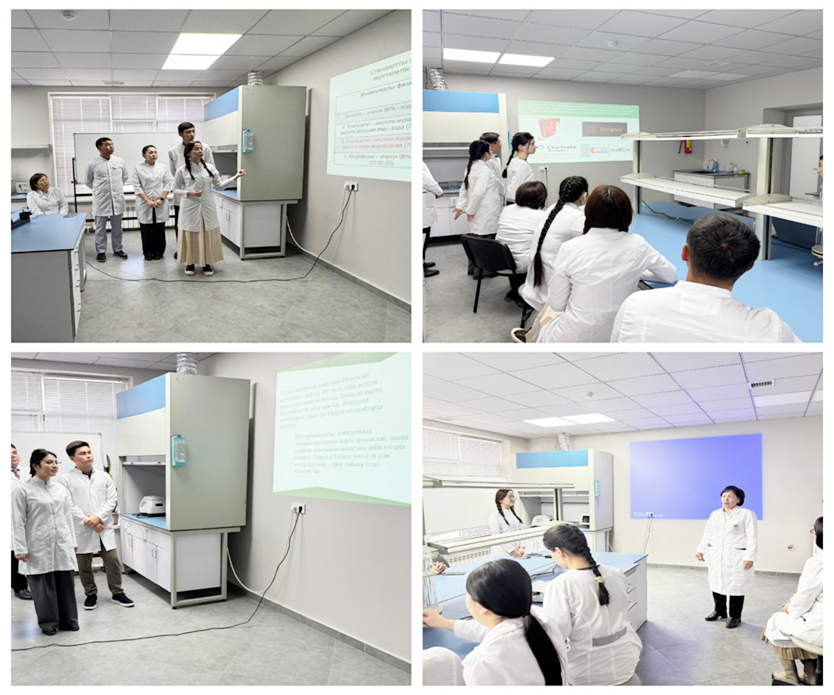
During the report, students noted that at the first stage of the research, they completed a literature review and patent search on the topic using international scientific databases (Scopus, Web of Science, Google Scholar, etc.).
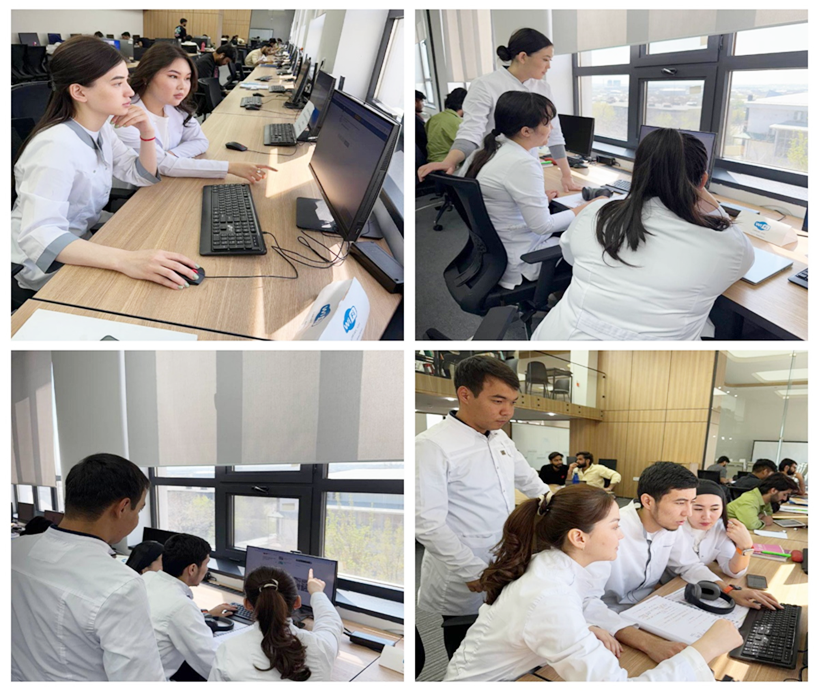
At the second stage of the project, studies were carried out to determine the qualitative characteristics of dental films based on St. John's Wort extract and their compliance with regulatory requirements. In particular, qualitative and quantitative analyses of biologically active substances were performed using chemical and instrumental methods (ionometry, HPLC, titrimetry), as well as determination of characteristics, dimensions, average mass, permissible deviations, and other quality indicators. All research was conducted in the scientific laboratory of the Department of Pharmaceutical and Toxicological Chemistry.
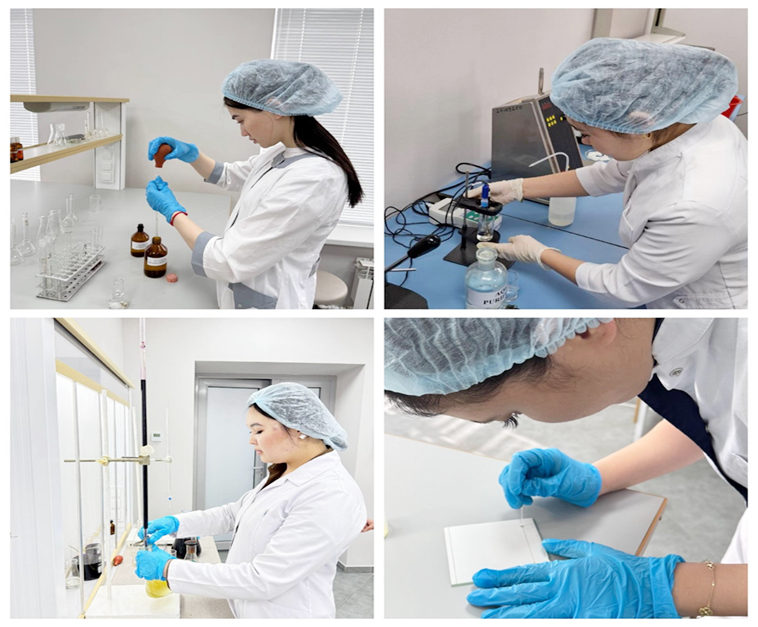
Students emphasized the convenience of using the Trello platform for project monitoring, task distribution, and coordination of team work.
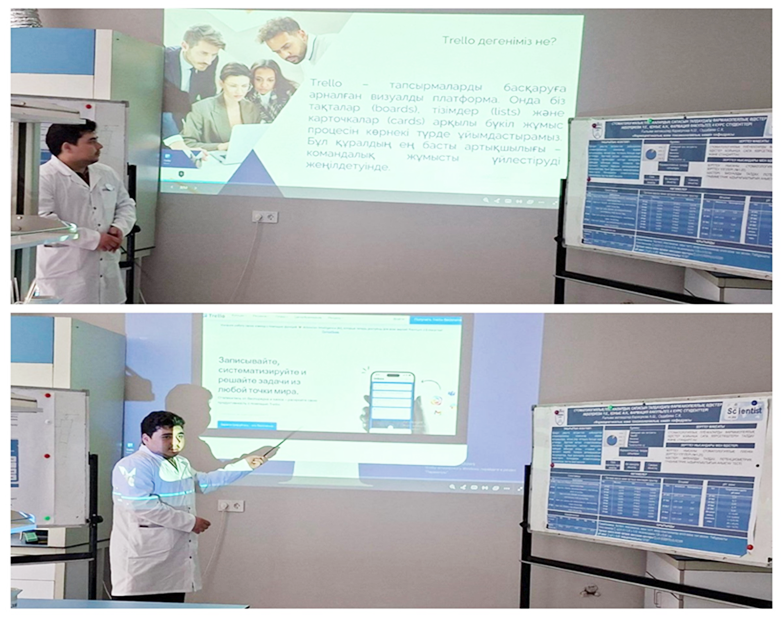
The head of the “Vitapharm” subgroup, U. Akberdieva, also highlighted the possibilities of using artificial intelligence (AI) in project-based learning in pharmaceutical chemistry.
AI refers to technologies that imitate the ability of computers and programs to think, learn, analyze, and make decisions like a human.
In her presentation, U. Akberdieva focused on the use of AI for automatic search of scientific information, selection of scientific articles (via platforms such as Semantic Scholar, Elicit.org), compilation of literature reviews, and extraction of summaries and key elements of articles (objective, method, result) when there is insufficient time to read.
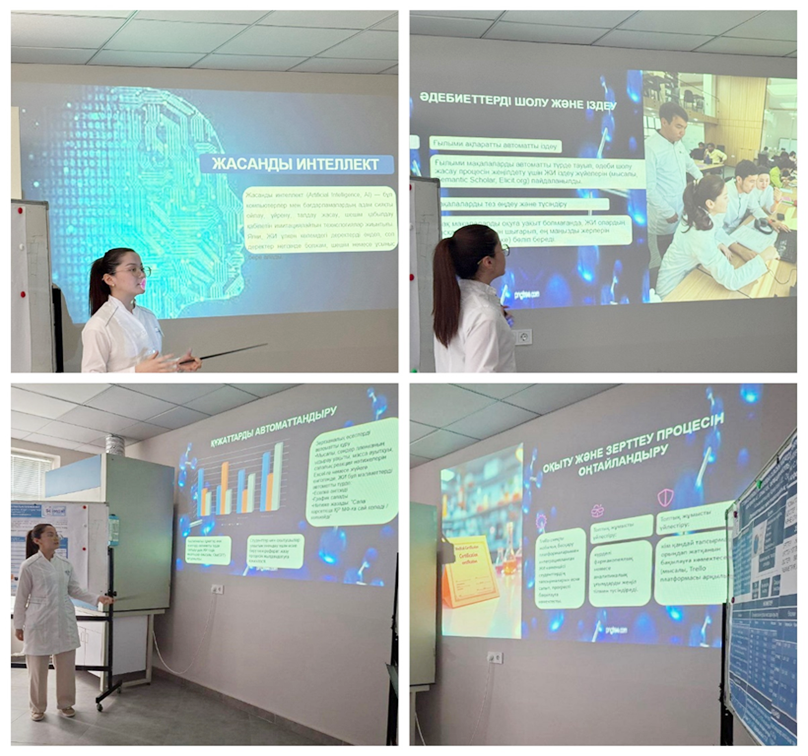
Particular interest from the audience was aroused by the idea of using regression models to quantitatively predict the qualitative characteristics of dental films depending on their composition and to forecast possible changes.
On April 24, 2025, U. Akberdieva and A. Qonys won third place at the international poster competition “Innovative Initiatives of Young Scientists,” organized by the Department of Pharmaceutical and Toxicological Chemistry.
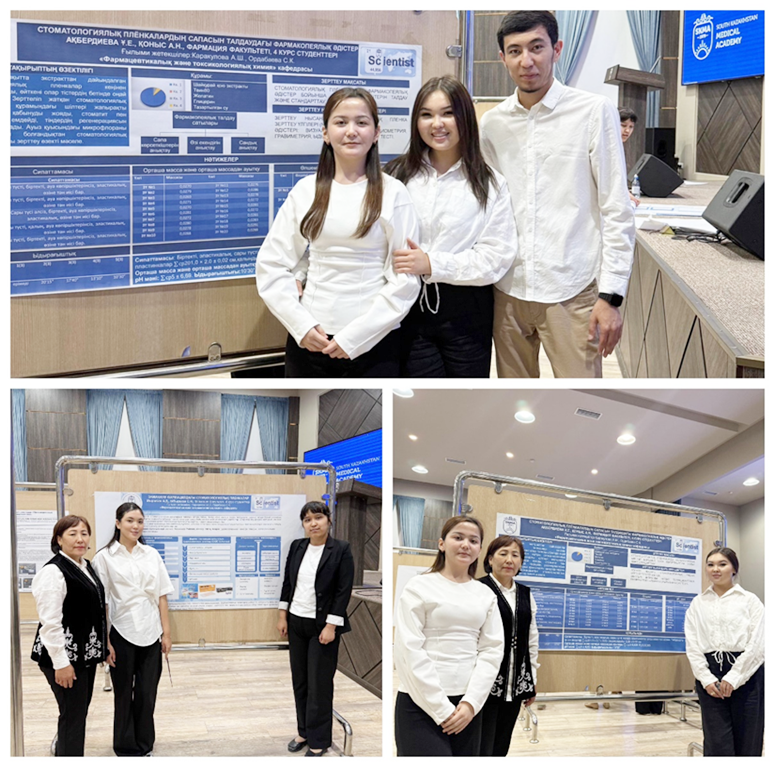
In addition, on May 22, 2025, students U. Akberdieva and A. Myrzabek will present the project results at the 4th scientific-practical conference of the student scientific society in Tashkent.
The project work will continue in the next semester. It is planned to develop methods for the quantitative determination of active substances using IR spectroscopy, UV spectrophotometry, photoelectrocolorimetry, as well as the preparation of a draft Temporary Analytical Normative Document based on the research results.
During the final reporting meeting, the Head of the Department, Professor S.K. Ordabaeva, and other faculty members gave a high assessment of the students’ work, noting the development of their skills in working with foreign literature, research and analytical abilities, the capacity to critically evaluate pharmacopoeial analysis, as well as their proficiency in tools such as MS Excel, Trello, and others.
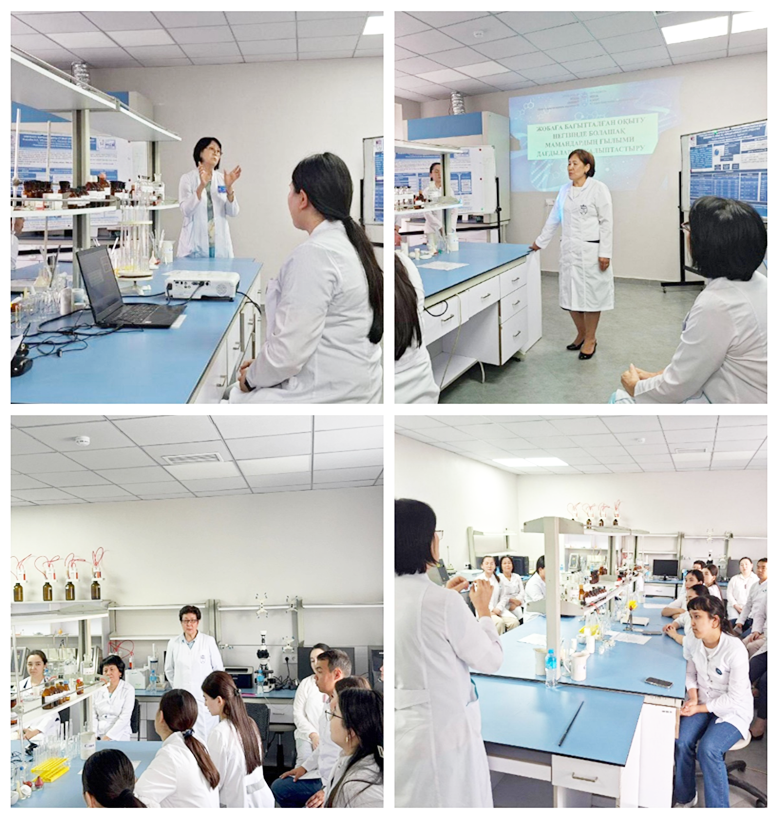
In conclusion, project-based learning helps students acquire a wide range of skills — from searching for and analyzing scientific information to developing and justifying analytical methods. Working under strict time constraints fosters self-discipline, while participation in real research processes cultivates critical thinking and an analytical mindset — qualities that are essential for future professionals in the field of pharmacy.